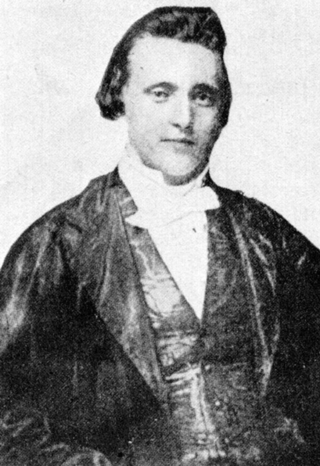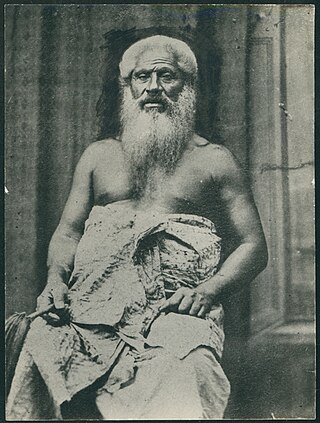Davuilevu, is the name of the site of three Methodist Church of Fiji institutions: Davuilevu Theological College, the Bible School for Catechist training, and Lelean Memorial School. It can be translated as "the large conch shell."
Davuilevu, is the name of the site of three Methodist Church of Fiji institutions: Davuilevu Theological College, the Bible School for Catechist training, and Lelean Memorial School. It can be translated as "the large conch shell."
The use of the adjective "large" in this context is used by the church to convey the significance of the duty bestowed upon church members who attend the Davuilevu institutions, which surpasses even its physical size. It is the premier institution of the Methodist Church in Fiji and Rotuma. Indigenous Fijians use the giant conch shell (Charonia tritonis) as a horn to herald important events such as the birth and death of a high ranking chief.
Davuilevu is located at Nausori, Fiji.
It was the home station of Reverend Thomas Baker who was martyred and killed in 1867 by cannibals at Nubutautau in the upper reaches of the Navosa Hills. His famous words still ring true to those who enter Davuilevu. When warned of a possible plot against his missionary party, he replied in Fijian that "Sa yawa vei au ko Davuilevu, ka sa voleka vei au ko lomalagi," meaning, "Davuilevu is yet far, heaven for me is closer."
The Methodist Church moved its Theological College for Ministers and Bible School for Catechists from Navuloa to Davuilevu in 1907. Fiji's first technical and engineering school was also established here. Later the colonial government asked the assistance of the Methodist Church to help set up the government technical school. This was named the Derrick Technical Institute, after the founder and Principal of the Davuilevu Technical School, R.A. Derrick, and who was asked to set up the government technical school at Samabula, Suva. The Derrick Technical Institute was later renamed the Fiji Institute of Technology.
Methodism, also called the Methodist movement, is a Protestant Christian tradition whose origins, doctrine and practice derive from the life and teachings of John Wesley. George Whitefield and John's brother Charles Wesley were also significant early leaders in the movement. They were named Methodists for "the methodical way in which they carried out their Christian faith". Methodism originated as a revival movement within Anglicanism with roots in the Church of England in the 18th century and became a separate denomination after Wesley's death. The movement spread throughout the British Empire, the United States and beyond because of vigorous missionary work, and today has about 80 million adherents worldwide.
Semesa Koroikilai Sikivou, CBE was a Fijian academic, politician, and diplomat.
Tomasi Kanailagi was a Fijian Methodist minister and political leader. He served as President of the Methodist Church of Fiji and Rotuma from 1999 to 2001, and in the Senate of Fiji from 2001 to 2006.
The Christian Church of Tuvalu, is a Christian church and is the largest religious denomination in the country. This status entitles it to "the privilege of performing special services on major national events"; its adherents comprise about 86% of the 11,600 inhabitants of the archipelago.
Hannah Dudley (1862–1931) was a Methodist mission sister who worked amongst Indo-Fijians in the Suva area of Fiji for 13 years. She had few educational qualifications but was revered for her kind-heartedness and self-sacrifice. Indo-Fijians in Suva called her Hamari Mataji. She did her work with dedication but was sometimes eccentric and independent minded.

According to the most recent census in 2007, most people have a Christian background, with a sizable Hindu (27.9%) and Muslim (6.3%) minority. Religion tends to split along ethnic lines with most Indigenous Fijians being Christian and most Indo-Fijians being mostly Hindu or in some cases, Muslim.
Alan Richard Tippett was a Methodist missionary, missiologist, and anthropologist.

Thomas Baker was a Methodist missionary in Fiji, known as being the only missionary in the archipelago to be killed and eaten, along with seven of his Fijian followers. The incident occurred in the Navosa Highlands of western Viti Levu in July 1867, and the rock used to kill Baker is still displayed in the village of Nabutatau. The soles of his leather sandals, which were also cooked by the cannibal tribe, are preserved at the Fiji Museum in Suva. Records show that Baker was killed and eaten as a result of him touching a chief's head, which is considered disrespectful in Fijian culture.
Sailasa Naucukidi was a Fijian Methodist-Wesleyan missionary who volunteered to take the Gospel of Jesus Christ to New Britain, Papua New Guinea in 1876. In 1878, he was martyred and his remains cannibalized. His remains along with other Fijian martyrs lay buried atop the Vunela Fijian martyrs cemetery Kabakada, East New Britain.
Aminio Baledrokadroka was the charismatic leader of Fiji's Methodist (Wesleyan) missionary band to New Britain Island, Papua New Guinea in the latter part of the nineteenth century. He displayed excellent qualities of leadership in adversity and paved the way for later generations of native Fijian missionaries in spreading Christianity to other parts of Papua New Guinea and the Solomon Islands.
RatuIlaijia Varani was a chief of Viwa, Bau Island, Tailevu in Fiji during the mid-to-late 19th century.

Joeli Bulu (Siaoeli Pulu) (c. 1810 – May 7, 1877) was a Tongan missionary who had become a Christian in 1833. He was one of a band of teachers who came to Fiji in 1838, and pioneered the work of the Christian Church in this group. He served the Church in Fiji for almost four decades. Many others were great in the same way. Paula Vea, another dynamic Christian missionary was a contemporary of his.
Josua Mateinaniu was a preacher and catechist (teacher) in the Methodist Church of Fiji and Rotuma. A wanderer and a sailor at first, he drifted in his travels to Tonga, where he became a Christian.
Lelean Memorial School is the largest school in Fiji. It was established in 1943 and is run by the Methodist Church of Fiji and Rotuma. It is co-located at the Davuilevu Methodist Compound with the Davuilevu Theological College and the Young People's Department, which runs training for Methodist catechists.
Reverend Paula Nayala Niukula (1937—1996) was a minister of the Methodist Church of Fiji and Rotuma in Bemana, Ruwailevu, Nadroga, Fiji.
Buivaroro was a Fijian High Chief and Lord of the island of Nayau.
Maseikula was a Fijian High Chief. He was a Chief of the island of Nayau.
Cyril Bavin OBE was a New Zealand-born Australian Methodist minister and missionary to Fiji who became General Secretary to the YMCA Migration Department and Honorary Secretary of the Migration Bureau of the Overseas League based in London. He was an advocate of mass migration from Britain to Canada, Australia and New Zealand both as a way to alleviate poverty in the mother country and as a means of building up the economy of these countries.
The South Pacific Association of Theological Schools (SPATS) is an association of theological colleges in the South Pacific. It was founded in 1969 and emphasises ecumenism.